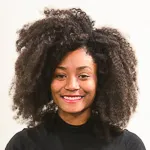I was brought up in a church that was foundationally a hetero-patriarchy. It taught old-time religion, and its own form of oppression. It would be foolish to say that none of those ideas were internalized; it would be foolish to say that I have not come a long way. And it would also be foolish to say that religion is the antithesis to progress. In fact, at its very core, the teachings I learned in the midst of that dysfunction is where I found my politics.
1 Corinthians 12:26 — If one member suffers, all suffer together; if one member is honored, all rejoice together.
As the world continues to challenge and disrupt the systems of oppression that work violently against Black, Third World, indigenous, queer, disabled, poor, incarcerated, trans*, disabled, non-binary and female-identified people there is more than ever a need for empathy. I found my empathy locked in scriptures before they were tainted by the hate of the state or man. While there are many ways to unlock empathy that fit the lifestyle and belief system of each individual, without empathy, compassion and love, there will be no progress.
Empathy is the ability to acknowledge, give validation and share in another human being’s life experiences, struggles and emotions. It is the ability to practice love and kindness toward another human being unselfishly — simply because they exist.
So how does empathy work in the framework of Black feminism?
One of the most influential texts of Black feminism is The Combahee River Collective. It states: “If Black women were free, it would mean that everyone else would have to be free since our freedom would necessitate the destruction of all the systems of oppression.”
In this system of oppression and disenfranchisement, “privilege” is created and enforced by not acknowledging the interconnectedness of the struggle — by ignoring empathy. To take away the power of privilege, power must be invoked in those who were taught to have none. Scripture taught me empathy because it gave me a moral compass and spiritual engagement with all people. If someone is suffering then I suffer too. Black feminism taught me empathy because if Black women are free, then this freedom must include transwomen, queer women, poor women, Third World women and all people on the fringes of society.
Black feminism gave me the framework to base my politics and dreams of tomorrow. Empathy armed me with the love, and compassion that is needed to actually accomplish that and believe it.
So you aren’t a Black feminist and you aren’t religious — how do you learn empathy?
You learn it through people. You learn it through your friends. You learn it by taking the time to hear the stories of the oppressed. You learn it by finding your humanity.
I have given too much of myself by trying to find empathy where capitalism trumps humanity, stereotype trumps real people and hegemony trumps acceptance. When you realize that people are shutting down bridges because every 28 hours they could be murdered by the state and left in the streets for 4.5 hours on display for the entire community to bear witness, then maybe your inconvenience isn’t as dire.
Empathy is not easy nor simply.
In order for empathy to be worth anything, the differences and similarities between yourself and the person you are showing empathy toward must be acknowledged and respected. Suffering is real, and you do not have to have the same identity to acknowledge it or work to eliminate it.
And you must ask the painful question if you take part in their suffering, intentionally or unintentionally, or even benefit from it. Is your language homophobic? Do you take up too much space and make others feel silent? You have to be willing to do the dirty work and really be honest with yourself. You have to be willing to acknowledge your privilege, because if you don’t acknowledge it, you can’t work to destroy it. In a conflict about your privilege between you and someone else, empathy must kill ego.
Last spring quarter, transgender activist and transwoman Laverne Cox spoke in Cemex auditorium. Cis-gender was a term that I did not hear until freshman year on Stanford’s campus. She spoke about her struggles growing up and her triumph in living her truth. She said, “Justice is love in public.”
I have cis-gender privilege. I will never fully understand the hurt, hate and violence she has endured and I will never personally feel that hurt, hate and violence that she has experienced because of her identity. But I can make it my duty to listen, learn, believe, love, show compassion, practice empathy, give acknowledgement of pain and center that voice in my politics.
Everyone is a work in progress. Changed hearts can only come from intentionally empathy and love. The “Welfare Queen” must become the woman without class privilege who just wants to feed, shelter and clothe her child. The “thug” must become the man who is victim to the prison industrial complex just trying to live his life.
Contact Mysia Anderson at mysia ‘at’ stanford.edu.
